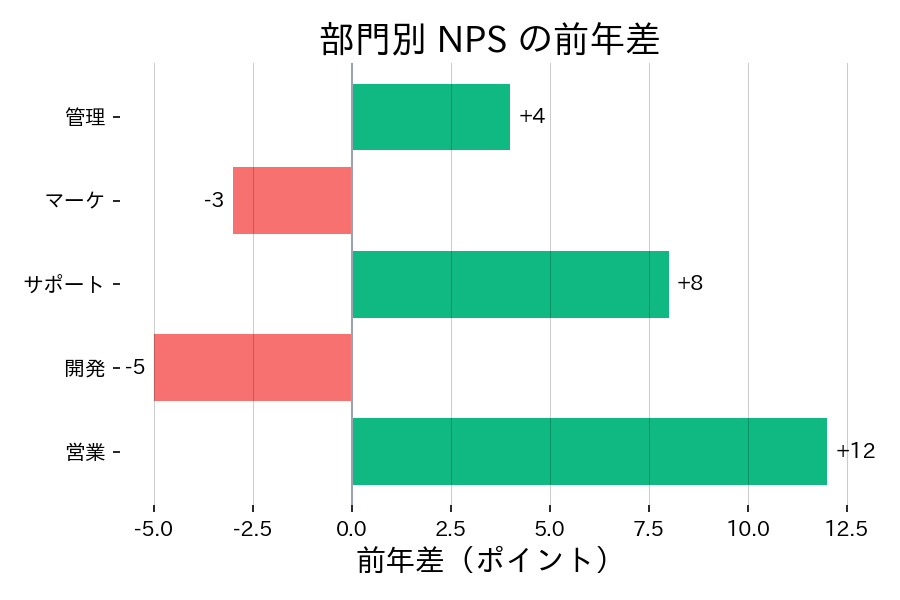6.3.5
ダイバージングバーで差分を表す
前年との増減を横向きの棒で表現すると、プラス・マイナスの傾向がすぐに読み取れます。
import numpy as np
import matplotlib.pyplot as plt
departments = ["営業", "開発", "サポート", "マーケ", "管理"]
change = np.array([12, -5, 8, -3, 4]) # 前年比 (ポイント)
colors = np.where(change >= 0, "#10b981", "#f87171")
fig, ax = plt.subplots(figsize=(6, 4))
bars = ax.barh(departments, change, color=colors)
ax.axvline(0, color="#9ca3af", linewidth=1)
ax.set_xlabel("前年差(ポイント)")
ax.set_title("部門別 NPS の前年差")
ax.bar_label(bars, fmt=lambda v: f"{v:+.0f}", padding=4)
ax.grid(axis="x", alpha=0.2)
fig.tight_layout()
plt.show()

読み方のポイント #
- 中央線を 0 にすることで増減の方向が明確になる。
- 色をプラスとマイナスで変えると、直感的に把握しやすい。
- 変化量が小さい場合はパーセント表示や注釈を加えて強調する。